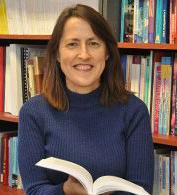Many of us gain a sense of control over a situation when we are able to create some kind of order.
Teachers presented with a class full of children also tend to do this; grouping children with others who appear to be at the same level as them in reading, writing or mathematics.
Professor Kim Beswick’s (University of Tasmania Professor of Mathematics Education) research has found that although well-motivated, this approach can start kids off on the wrong foot and set them up for failure – especially when it comes to mathematics.“Anything that gives children the message that their maths ability is fixed creates fear of and dislike for the subject in students and impedes their learning,” Professor Beswick said.It reinforces the widely held but erroneous and damaging belief that some people are good at maths and others aren’t and that there isn’t anything you can do about that.
We are finding teachers’ perceptions of students can affect their ability to learn mathematics – even from an early age.
Teachers will sometimes subconsciously
group students into those who get it and those who don’t.
“Grouping kids based on ability is designed to make teaching easier – but it does not make it better. Teachers often don’t know how to make maths meaningful or how to evaluate the mathematical merits of different solution strategies.
These things are much closer to what maths is actually about than just memorising isolated facts, and I want to help teachers look at their beliefs and knowledge and learn how to achieve this.
"While this research is highly important at the individual level for students, there is a more wide-reaching implication when the education system doesn’t teach maths well. Mathematics is necessary in everyday life, and it’s a rare job that doesn’t involve some kind of mathematics capability.
“No matter where children come from they have the same right to quality mathematics teaching. I want to break the link between low socio-economic status and low educational attainment. All it takes is teachers who believe in their students’ capacity to learn and see their job as finding effective ways to make ideas click forWhen it comes to tackling some of society’s biggest problems now and into the future it is vital for our society to be mathematically literate, Professor Beswick said.
the student,” Professor Beswick said.
“Most of us can recall a teacher that made a big impact on us, I want to help teachers and their students see that mathematics is beautiful and something that anyone can learn and get better at learning so that we can improve our mathematics achievement across the country.Keen to make a difference? Apply now to become a research student.We need to change the fear teachers and students have of it and help them to appreciate what it is really all about.
